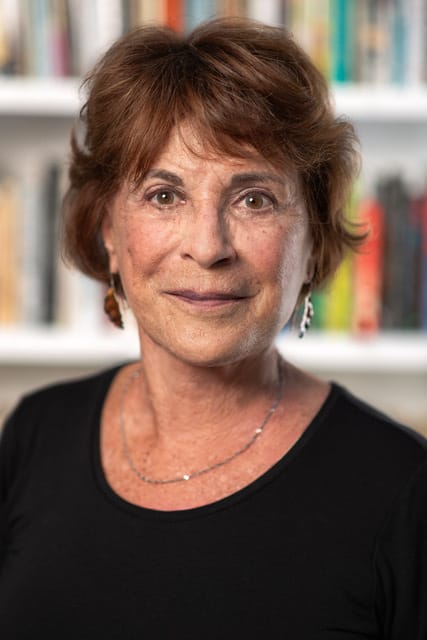Newly retired LA Superior Court Judge Katherine Mader, a long-time Santa Monica resident, is a woman who speaks in measured tones using considered words—something you might expect of someone whose job is to mete out justice. Her just-published book, “Inside the Robe: A Judge’s Candid Tale of Criminal Justice in America,” is a daily diary of events and cases in her courtroom over one year, 2016, documenting how complicated it is to just “follow the law.”
Her choice of words is careful but honest, and if she believes something is wrong, she doesn’t pull any punches. You’re getting straight talk, well argued but delivered diplomatically, from a pro who shares the inner workings of the criminal justice system; from politics, power plays, and strategies used by lawyers to go to trial, win or settle; to the tactics ambitious lawyers use to get themselves considered for promotions, judgeships or just keep their jobs.
FULL SPECTRUM EXPERIENCE
Katherine Mader, who raised three children while pursuing a full time career over 45 years (with help from her husband, whom she calls a “feminist before there even was feminism”), has been a defense attorney, a prosecutor, an investigator for a special DA unit that prosecuted police and public officials; she became the first LAPD Inspector General (overseeing LAPD’s disciplinary system), and ultimately ran for election to Superior Court and won.
Her broad-ranging experience on both sides of the criminal justice system and as an investigator into police misconduct gave her unique insights into the many kinds of cases that came before her. Among other felony hearings and trials, she often heard cases about drug addicts, gang members and mentally ill homeless people. She tried her best to dispense justice.
Forever appended to her name will be the fact that as a defense attorney, she successfully saved Angelo Buono, one of two notorious serial rapist/murderers known as the Hillside Stranglers, from execution.
But that’s really not what she wants to be known for. “Hopefully I’ll be remembered as someone who tried to inject fairness into the criminal justice system,” she said.
THE KINDNESS OF STRANGERS
Perhaps the happiest ending in her court involved a man named Kash Register (his real name), in prison for 34 years for a murder he did not commit, whose writ randomly landed in her court.
“I got many writs during the years; lots of times these requests to re-interview witnesses or review cases are routinely denied without a hearing. But I was impressed by the quality of the writing, and the fact that the witness offering testimony could prove that the eyewitness, who was her sister, had lied. Plus the prisoner had an alibi.” She ordered a hearing.
A cascade of coincidences led that woman, now living in Texas, to look up Kash (because of his unusual name) in a criminal database, and discover that he’d been jailed. She was horrified because at the time of the murder, she worked for the police department and had told detectives not to believe her sister, who was a drug addict and thief. She assumed the case had been dropped. Instead the drug addict cut a deal for her testimony,
This stranger reached out to a law firm that previously worked on Kash’s behalf. A former fellow prisoner, who promised Kash if he got out that he would become a lawyer and defend him, happened to be interning there the day the call came in from the witness in Texas. He proceeded to interview her and then prepared the writ that Judge Mader received.
It was her role to appoint a lawyer for Kash, so she sent him to Laurie Levenson’s Project for the Innocent at Loyola Marymount University. Kash won. And in Civil Court, famed attorney Barry Scheck (Innocence Project; OJ Simpson trial) helped him reached a settlement of $16 million for his 34 years in prison. He was found factually innocent and his record was expunged.
MOLDED EARLY ON
Judge Mader knows that judges are just human, equal parts brilliance and flaws, all trying to be “fair.” But, she says, all judges are shaped by their personal experiences. “We come from a variety of backgrounds, from parents who worked the farm fields or came over as Vietnamese boat people. We all bring what we’ve experienced to our decisions.” Her background includes being haunted by the loss of family members to The Holocaust.
She says she was “molded early on” by a case she defended in the 1970s in which, “Two honest police officers testified (on her defendant’s behalf), and were subsequently hounded out of the Monterey Park Police Dept. That had an influence on me.” As Inspector General at LAPD, she made a lot of powerful enemies. And before she could be fired, she resigned.
In this BLM moment, when calls for justice reform are being heard across the US, Katherine Mader says we should start with this: “Prohibit elected District Attorneys from taking Police Union money. And move prosecutions of officer shootings outside the DA’s office to an independent agency that isn’t beholden.”
George Gascon, she told me, has already sworn off accepting any Police Union money and supports independent investigations. That’s why she’s supporting his campaign to become the next District Attorney.
As a judge she was careful to be neutral. Now that she’s retired, and with her depth of knowledge about the inner workings of L.A’s justice system, she feels strongly that it needs to be reformed.
After her 45 years in the field of justice, I trust her judgment.
Sarah A. Spitz is an award-winning public radio producer, retired from KCRW, where she also produced arts stories for NPR. She writes features and reviews for various print and online publications.


